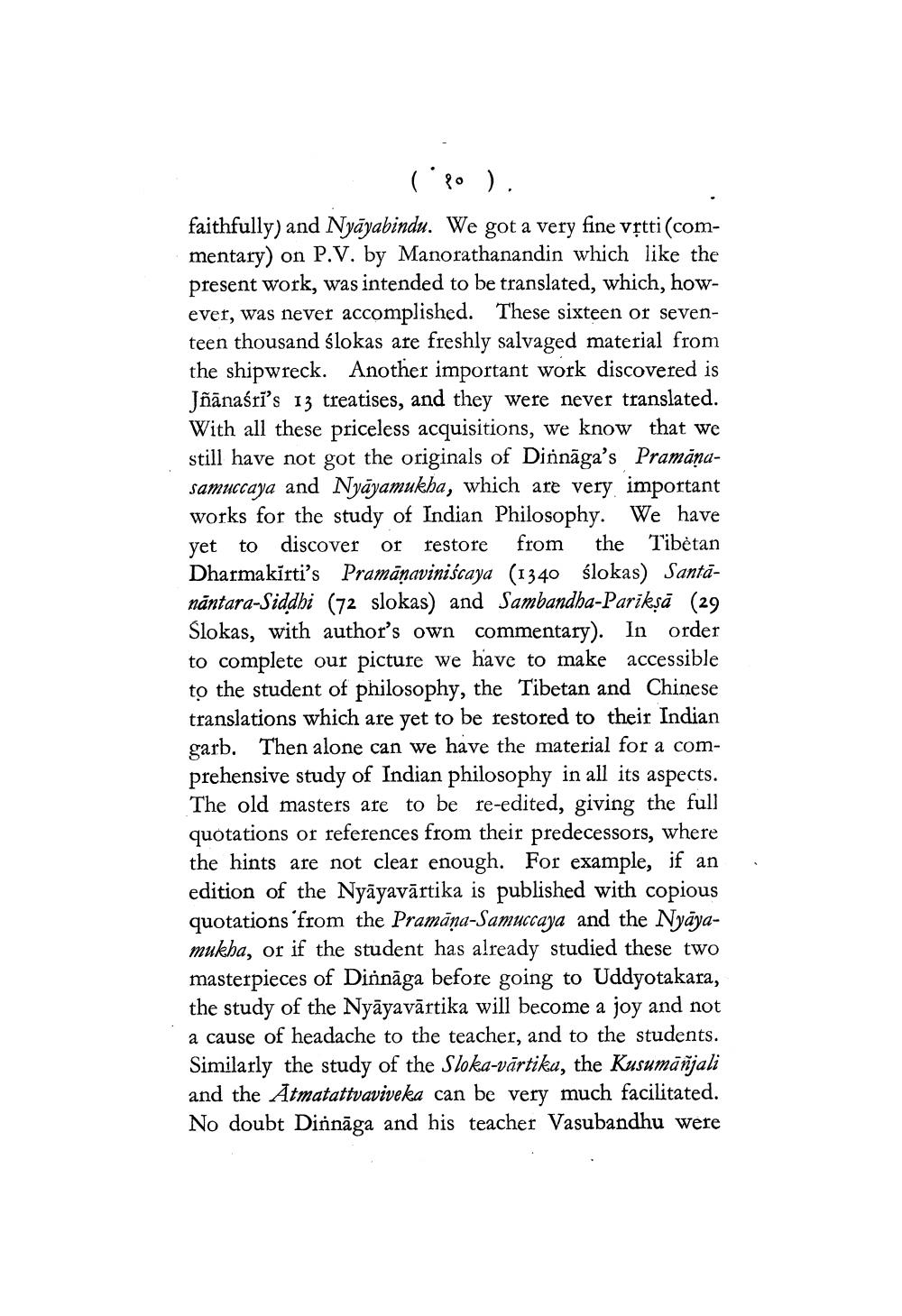________________
(po). faithfully) and Nyāyabindu. We got a very fine vrtti (commentary) on P.V. by Manorathanandin which like the present work, was intended to be translated, which, however, was never accomplished. These sixteen or seventeen thousand ślokas are freshly salvaged material from the shipwreck. Another important work discovered is Jõānaśri's 13 treatises, and they were never translated. With all these priceless acquisitions, we know that we still have not got the originals of Dirināga's Pramāņasamuccaya and Nyāyamukha, which are very important works for the study of Indian Philosophy. We have yet to discover or restore from the Tibetan Dharmakirti's Pramāņaviniscaya (1340 ślokas) Santanāntara-Siddhi (72 slokas) and Sambandha-Parikṣā (29 Slokas, with author's own commentary). In order to complete our picture we have to make accessible to the student of philosophy, the Tibetan and Chinese translations which are yet to be restored to their Indian garb. Then alone can we have the material for a comprehensive study of Indian philosophy in all its aspects. The old masters are to be re-edited, giving the full quotations or references from their predecessors, where the hints are not clear enough. For example, if an edition of the Nyāyavārtika is published with copious quotations from the Pramāņa-Samuccaya and the Nyāyamukha, or if the student has already studied these two masterpieces of Dinnāga before going to Uddyotakara, the study of the Nyāyavārtika will become a joy and not a cause of headache to the teacher, and to the students. Similarly the study of the Sloka-vārtiku, the Kusumāñjali and the Atmatattvaviveka can be very much facilitated. No doubt Dinnāga and his teacher Vasubandhu were




